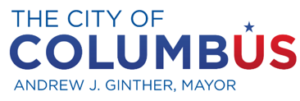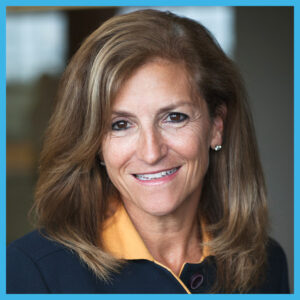RECAP: 2022 Symposium on Children

Crane Center for Early Childhood Research and Policy’s 9th Annual
Symposium on Children:
INVEST EARLY IN CHILDREN: Policies, practices, and ideas for action
This year’s Symposium on Children brought together researchers, practitioners, policy and thought leaders to look at how we can better invest in children. This year’s event featured an in-person breakfast for leaders across Ohio, followed by our virtual conference that was streamed for a national audience.
Stakeholder Panel & Roundtable Breakfast
Our VIP Panel & Roundtable Breakfast brought together key stakeholders in early care and education from around the state for a discussion around policies, messaging, and key areas of investments for children in Ohio. Crane Center executive director Dr. Laura Justice welcomed guests, then Dean Donald Pope-Davis of Ohio State’s College of Education and Human Ecology shared about the work that the college is doing to invest in education through its four centers. President and CEO of the Crane Group Tanny Crane along with Crane’s associate director of policy and external affairs Jamie O’Leary presented about investments at local and state levels here in Ohio as a framework for the panel discussion. Jamie then introduced the panelists, which included Dr. Kirabo Jackson, State Senator Stephanie Kunze, State Representative Monique Smith, Deputy County Administrator for Health and Human Services Joy Bivens, Columbus City Council President Pro Tempore Elizabeth Brown, Columbus City Council, Executive Director of Preschool Promise of Dayton and Montgomery County Robyn Lightcap, and CEO of Future Ready Columbus Jane Leach.
Virtual Conference
Dr. Laura Justice opened the event by introducing the powerhouse lineup of speakers. She also shared about the Crane Center’s work and how it is investing in children and families through early childhood research, practice, and policy. Dean Pope-Davis spoke about how the college’s commitment to investing in the next generation of educators and those working to improve the human experience. Then Tanny Crane set the stage by addressing the crumbling infrastructure of early childhood and spoke to the urgency of investing now, investing large, and investing into the future.
Keynote speaker Dr. Kirabo Jackson, a labor economist at Northwestern University who studies education and social policy issues, shared research on how education policies impact children’s lifelong outcomes through adulthood. The breakout sessions showcased additional research on investments that are early, broad, and sustained. Dr. Arya Ansari presented on the overpromise of early childhood as a “cure all” for future outcomes, Dr. Lauren Jones discussed what children lost without the passage of the Build Back Better bill, and Dr. Deborah Frank spoke about the impact of food insecurity on children’s development. The final session was a policy panel that explored funding alternatives, messaging, and shared examples from communities who have innovated in this realm. Moderated by Jamie O’Leary, speakers included Director of Multnomah County’s Preschool for All program Leslee Barnes, Children’s Funding Project Senior Fellow Reggie Harris, author Elliot Haspel, and President and CEO of the Denver Preschool Program Elsa Holguín.
It was a day that inspired us toward greater resolve and courage when it comes to how much we invest in our youngest citizens. Find details on and recordings of each session below.
INVEST EARLY IN CHILDREN: Policies, practices, and ideas for action
WELOME & OPENING REMARKS
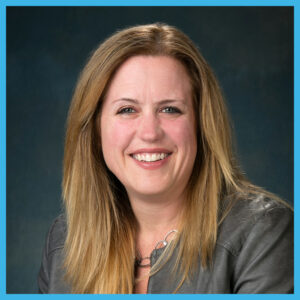
Dr. Laura Justice, executive director of the Schoenbaum Family Center and Crane Center for Early Childhood Research and Policy
Dean Donald Pope-Davis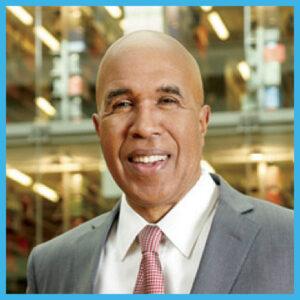 , PhD, College of Education and Human Ecology at The Ohio State University
, PhD, College of Education and Human Ecology at The Ohio State University
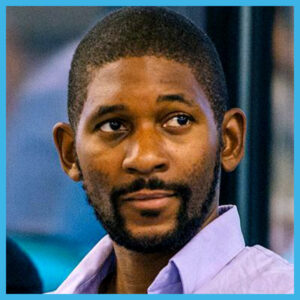 Dr. Kirabo Jackson, Abram Harris professor of education and social policy at the School of Education and Social Policy at Northwestern University.
Dr. Kirabo Jackson, Abram Harris professor of education and social policy at the School of Education and Social Policy at Northwestern University.
A Broad and Long View of Education
 Dr. Kirabo Jackson, Abram Harris professor of education and social policy at the School of Education and Social Policy at Northwestern University
Dr. Kirabo Jackson, Abram Harris professor of education and social policy at the School of Education and Social Policy at Northwestern University
ABOUT THE BREAKOUT
This session (a) presents research documenting how conventional, short-run, test-score-based measures fail to measure important educational outputs, (b) presents research highlighting how the efficacy of investments in early education is dependent on the quality of subsequent educational investments and vice versa, and (c) discusses what these findings suggest about cost-effective ways to improve educational outcomes.
Everything & the Kitchen Sink: Why do we expect so much of early childhood education?
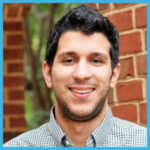
Dr. Arya Ansari, Crane faculty associate and assistant professor of human sciences at The Ohio State University
ABOUT THE BREAKOUT
While the science of brain development shows the importance of a child’s first five years in building key life skills, there has been a shifting expectation of early child care and education to be a magic bullet that fixes future educational and economic ills for years to come. This session examines whether we have asked too much of early childhood education programs and highlights where we go from here.
Build Back Better? What children lost, and where to go from here
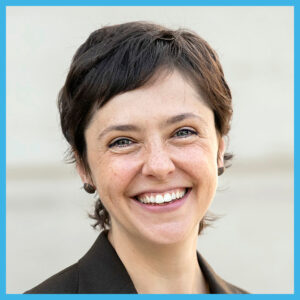
ABOUT THE BREAKOUT
The Build Back Better bill included several large investments in early childhood, including expansion of the child tax credit, and substantial funding for child care. This session gives an overview of the bill’s investments in children, the status quo we were left with when it did not pass, and insights from the literature to guide our efforts as we move forward.
Food Insecurity’s Impact on Bodies and Brains in the First 4000 days: Can we prevent it?
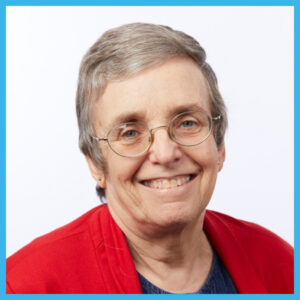
ABOUT THE BREAKOUT
This session reviews the association of food insecurity on birth outcomes, child physical health, and young children’s learning and behavior. This session also highlights upcoming opportunities for advocacy to decrease the threat to America’s children.
Envisioning a Way Forward: How can we get started?
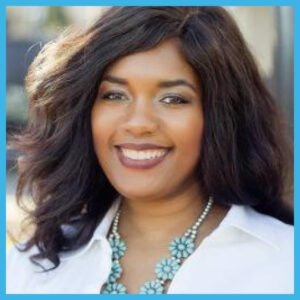
Leslee Barnes, director of the Preschool for All program in Multnomah County, Oregon
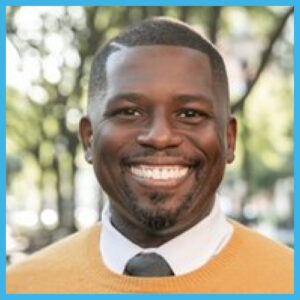
Reginald Harris, senior fellow of strategic financing at the Children’s Funding Project
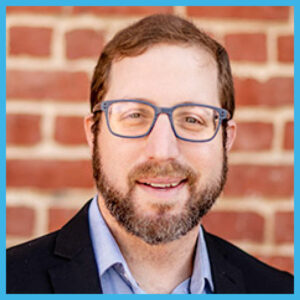 Elliot Haspel, author of Crawling Behind: America’s Child Care Crisis and How to Fix It
Elliot Haspel, author of Crawling Behind: America’s Child Care Crisis and How to Fix It
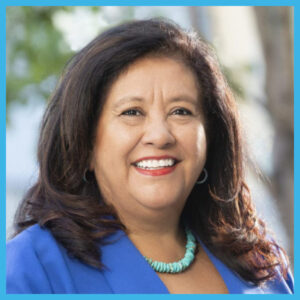
Elsa Holguín, President and CEO of the Denver Preschool Program

Moderator: Jamie O’Leary, associate director of policy and external affairs at the Schoenbaum Family Center and Crane Center for Early Childhood Research and Policy
Want to learn more? Check out these additional resources
KEYNOTE:
Read Dr. Kirabo Jackson’s research on the impact of public policy and investments from Head Start through K-12.
BREAKOUTS:
Dr. Arya Ansari studies the long-term benefits of early childhood education, specifically on the topic of convergence (rather than fadeout) of these benefits with children who did not attend preschool, as well as what this means regarding investments over time. Find a full look at Dr. Ansari’s work here.
Dr. Lauren Jones examines how public policy impact children’s healthy development, including what was support was lost when Build Back Better did not pass. Dr. Jones has also presented on the impact of Child Tax Credit and its impact on child development for which she created a great list of additional references on the topic in addition to her own body of research.
Dr. Deborah Frank’s career, beyond her work as a pediatrician, has been as a leading advocate for policies that address hunger and nutrition for children. This led her to found Children’s HealthWatch, which looks at how public policies impact children’s health and nutrition. It has written a repository of policy briefs and reports that are free and available to the public.
POLICY PANEL:
Multnomah County, Oregon made public the plan they used for their tuition-free Preschool for All program, which is headed by director Leslee Barnes. You can also read more about the community’s ballot measure on taxing high-income earners.
Children’s Funding Project helps communities and states expand equitable opportunities for children through strategic public financing. Senior fellow Reggie Harris shared CFP resources including inspiring ideas such as a guide on voter-approved children’s funds, fact sheets, and resources. Get started here.
Author Elliot Haspel has a book about fixing America’s child care system. He is also a frequent commentator across numerous platforms which you can keep up with by following him on social media (Twitter, Facebook, or LinkedIn.)
Denver Preschool Promise, led by president and CEO Elsa Hoguín, also shared a free and accessible roadmap of how Denver came to fund its preschool program. Within this roadmap are insights into failures, successes, the public campaign planning, as well as campaign efforts and building public will. Check it out here.
ADDITONAL:
This research article discusses the impact of a poverty reduction intervention on infant brain activity.
This research article outlines a model on the impact of increased public investments in early childhood education.
The North Carolina Early Childhood Foundation has an awesome library of case studies of local funding initiatives for early childhood across the U.S. You can look by geography or sort by funding type. Dig in here.


